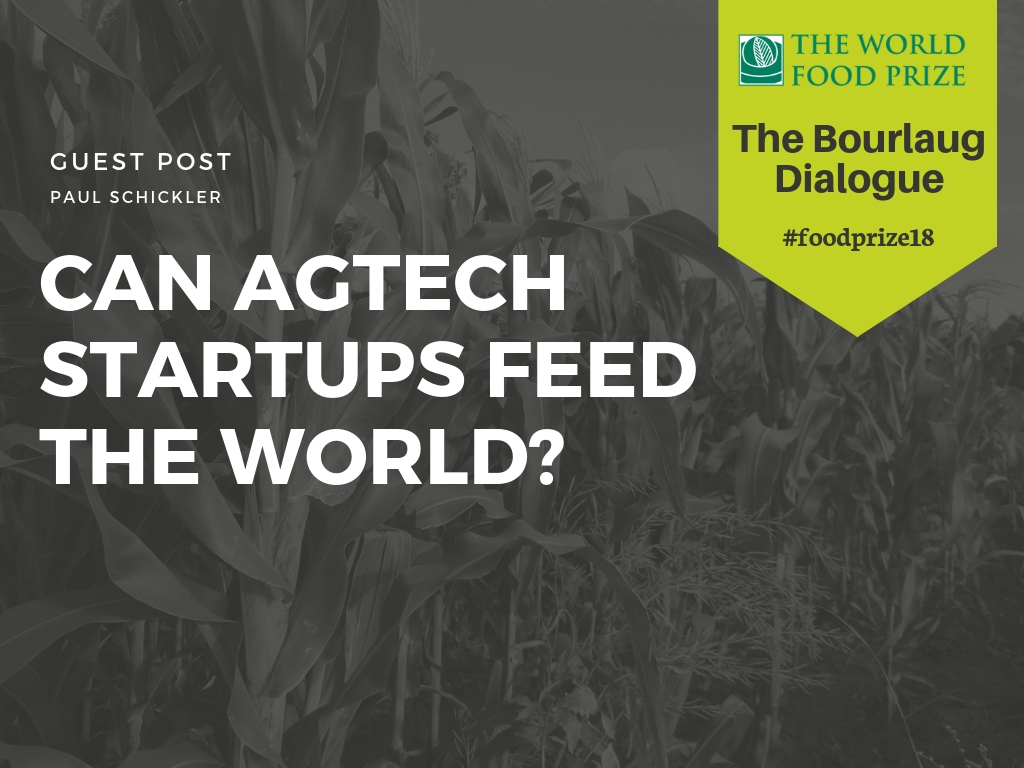How NewLeaf Symbiotics & Others are Rising to the Challenge
By Paul Schickler, NewLeaf Symbiotics Board of Directors member and former President, DuPont Pioneer
The Challenge Ahead
Last month, global agriculture leaders came together for the 2018 Borlaug Dialogue International Symposium. As part of the annual World Food Prize event, the Borlaug Dialogue recognizes the individual(s) making the greatest contribution to agricultural and food production. As the Council of Advisors Chairperson, I take great pleasure in helping to curate the event, in honoring great contributions, and in growing the Youth Institute globally.
This year, our theme was “Rise to the Challenge” – with content focused on how agriculture can feed and nourish the world’s growing population.
In my opinion, this is exactly what Ag needs to be talking about. And, more than that, it’s where we need to focus our attention for the foreseeable future.
Today, we have a global population of 7.5 billion – and at least 820 million people are food insecure.
By 2050, we expect the population to grow to 10 billion. Nourishing all will require a roughly 70 percent increase in food production. And we’ll have to do it in the face of global climate change with limited land and water resources.
The Role of AgTech Startups
During the Borlaug Dialogue, I moderated an energized panel of agriculture startup leaders that included NewLeaf CEO Tom Laurita.
This was the first time that the event included the growing AgTech startup community, and there’s no doubt that this community is vital to this discussion, now more than ever.
Why?
There’s an incredible amount of innovation happening in the startup space. At the same time, innovation from traditional sources is declining. Consolidation, rising costs, risk, commodity prices, and a lack of public research are limiting investment from major corporations and government.
Startups like NewLeaf Symbiotics can push through many of those barriers. They can move faster to experiment, test and iterate new ideas. And, often they are nimbler in commercializing these innovations.
The Promise of NewLeaf Symbiotics
I joined the NewLeaf Symbiotics board earlier this year because I’m intrigued and energized by the role startups can play in feeding the global population. But not all startups have the same promise and potential.
NewLeaf stands out among other startups for several reasons.
For one, its model works well with shifting consumer attitudes and desire for more sustainable and environmentally friendly products and practices.
I also believe that NewLeaf’s focus on one class of beneficial microbes called M-trophs is exciting and promising. This recent blog post summarizes the some of the reasons M-trophs stand out from other microbes.
M-trophs, and NewLeaf’s work to commercialize them, could have a big impact on agriculture’s goal to feed and nourish the world. They show great promise across all crops and in all agricultural systems, (traditional, organic, and biological, and – growing in importance – combination systems). They can increase yield, fight pests and diseases, overcome resistance, reduce environmental impact, improve crop nutrition content, and improve plant and soil health. And, they’re already proving themselves in the field with impressive results for soybean and peanut farmers.
I’ve been thinking about the challenges facing agriculture for a long time. As we approach the 2018 harvest in the U.S. I am grateful for all that agriculture has accomplished, and I want to salute this year’s World Food Prize Laureates. I am thankful for the powerful community who attended the World Food Prize event and am humbled by their commitment to address the challenges our world faces. I am inspired by the exciting innovations coming from unexpected places and optimistic about our future.



